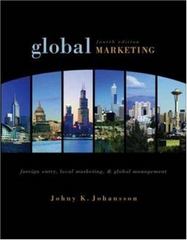please answer
Question 32 (1 point) Listen What is one very notable fact about the difference between IACs (industrially advanced countries) and LDCs (less developed countries)? a) Many LDCs are located in the tropical zones, while IACs are in the temperate zones. @ b) LDCs are very wealthy countries. C LDCS have high levels of income. Od) LDCs are in the temperate zones. Marketing Tide goes out on U.S. export hopes By BRYCE KNORR .Some of our (U.S.A.) traditional competitors have benefited from weaker currencies that made their products cheaper. The value of the euro compared to the dollar is around 20% cheaper than a year ago. European farmers also enjoyed bumper harvests of their own in 2014, helping them capture key markets for wheat into North Africa and the Middle East. The downturn in commodities had been especially hard on countries like Canada and Australia, whose economies are dependent on crude oil and mining, lowering the value of their [currencies against the U.S. dollar]. Question: What is true, judging by the article? a) Potential foreign buyers of U.S.A. farm products will have to pay more of their own currency to get the dollars they need to buy those U.S.A. farm products. O b) An Asian importer of farm products will get a better deal in Europe (paying in Euros) than in the U.S.A. (paying with U.S.A. dollars) c) There is an incentive for buyers of farm products to buy from Europe rather than from the U.S.A. d) The stronger dollar in 2015 makes the U.S.A. farm products more expensive for foreign buyers of those products. e) All of the above are correct. Question 49 (1 point) Listen Read the following excerpt: "Unions have strongly criticized the North American Free Trade Agreement (NAFTA, USMCA) between the United States, Mexico and Canada as critically harmful to workers and the U.S. economy. The AFL-CIO argues NAFTA has harmed consumers and workers in all three countries, contributing to a loss of jobs and drop in income while strengthening the clout of multinational corporations. The unions contend that the increased capital mobility facilitated by free trade has hurt the environment and weakened government regulation." Question: As shown in the above excerpt, what is true about international trade? a) All workers in all countries benefit from international trade (b) Some groups lose out from international trade. c international trade is a net benefit for all participants. d) Each and every group involved in international trade gain more than they lose







